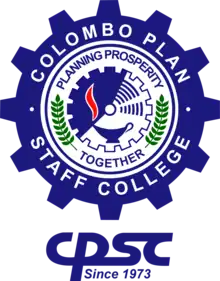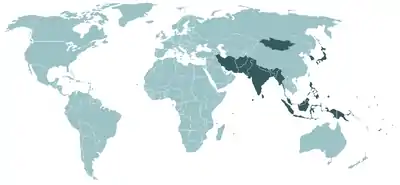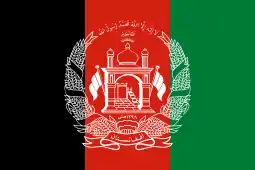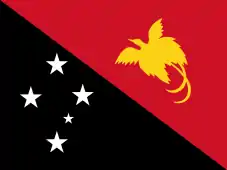Colombo Plan Staff College
The Colombo Plan Staff College for Technician Education (CPSC) is an autonomous specialized agency of the Colombo Plan. It was established on December 5, 1973 at the 23rd Consultative Committee Meeting of the Colombo Plan held in Wellington, New Zealand to assist the member countries of the Colombo Plan in developing and enhancing their technician education systems. It became operational in 1974 with the Republic of Singapore serving as the first host Government. In January 1987, CPSC moved to Manila, Philippines upon the invitation of the Philippine Government.

History
Responding to the need to improve the quality of technician education and training, the Member Governments of the Colombo Plan considered the recommendation of the Singapore Colloquium in May 1969 to establish a Regional Center for Technician Teacher Training. Adopted during the 20th Consultative Committee Meeting in Canada in October 1969, the said recommendation was firmed up into a feasibility study which was conducted from March to June 1970. Results were presented during the 21st Consultative Committee Meeting (CCM), referred for Further Study and examined by a working party of experts in February 1971, October 1971 and February 1972, respectively. After a thorough scrutiny, it was finally approved during the 22nd CCM in November 1972. A Memorandum of Understanding relating to the establishment of the Colombo Plan Staff College for Technician Education (CPSC) as a regional center followed during the 23rd CCM in December 1973.
Member Countries

CPSC was founded by 26 countries which include Afghanistan, Australia, Bangladesh, Bhutan, Canada, Fiji Islands, India, Indonesia, Iran, Japan, Khmer Republic, Republic of Korea, Laos, Malaysia, Republic of Maldives, Myanmar (Burma), Nepal, New Zealand, Pakistan, Philippines, Singapore, Sri Lanka, Thailand, United Kingdom, United States of America and the Republic of Vietnam. They collectively agreed that a regional center for technician education and training needed to be established to assist countries in Colombo Plan region in this area. The said countries cooperated under south-south cooperation which has been the principal framework for CPSC’s programs and activities from its inception until now.
CPSC has 26 member countries classified as charter and current members. There are sixteen (16) active member countries, twelve (12) charter member countries.
Active Members
 Afghanistan
Afghanistan Bangladesh
Bangladesh Bhutan
Bhutan Fiji
Fiji India
India Malaysia
Malaysia Maldives
Maldives Myanmar
Myanmar Mongolia
Mongolia Nepal
Nepal Pakistan
Pakistan Papua New Guinea
Papua New Guinea Philippines
Philippines Singapore
Singapore Sri Lanka
Sri Lanka Thailand
Thailand
Charter Members
Purpose & Functions
CPSC is a unique Inter-Governmental Organization (IGO), which consistently addresses issues in Technical and Vocational Education & Training in the Asia and the Pacific region.
For over four decades, CPSC continues to assert its role in advancing human resources development across the region.
The purpose of the Staff College is to improve the quality of technical education and training in the Colombo Plan region. This is done by meeting the needs for technician education of teacher educators and trainers and senior staff in the field, who can play a more active part in in-service training and staff development.
The main functions of the Staff College include:
- Provide courses of further professional education and training to persons responsible for the planning, development, administration and supervision of technician education and training and persons in key supporting roles;
- Conduct conferences on various aspects of technician education and training;
- Assist in the conduct of projects in the field of staff and curriculum development and other projects aimed at the effective utilization of resources for learning and teaching;
- Promote, coordinate and undertake research and development activities;
- Advise and assist member countries in developing their technician teacher education;
- Collect and disseminate information on technician education and training.
Corporate Strategy
CPSC follows a 5 Year Strategic Plan that is a product of a multi-stage process in which consultative meetings and gatherings were organized to facilitate the discussion of ideas, concerns and strategies for the staff college's 5 year direction.